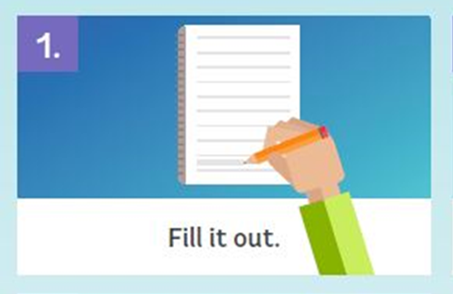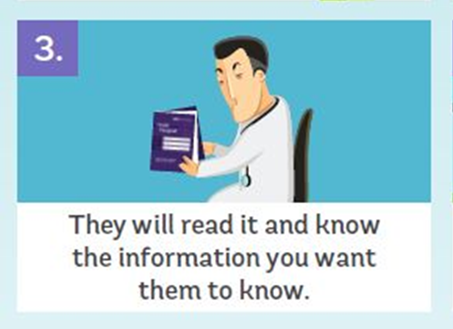Tools for accessing healthcare services
Disability alerts and health passports give your healthcare professionals information about you for your appointment. The information on this page contains useful information on disability alerts; Health Passports; New Zealand Sign Language (NZSL) resources, help if you are pregnant and research.
Disability alerts: tell us what you need from us
A disability alert adds information about your needs to your electronic patient file. It helps us make sure you can access your appointment, understand what’s happening, and feel safe.
To create your disability alert, fill out the ‘my access information’ form to tell us what you need.
Contact us for more information or help with disability alerts
My Health Passport
To save you repeating information to your doctor or health and disability services, use My Health Passport. It explains how you want them to communicate with you and help you.
The passport is a booklet you fill out and take with you to visit health and disability services.

How to use your Health Passport:

Fill in as much as you like — some of the information might not apply to you. Fill it in before your appointment.

Take your passport every time you visit a disability health service. Tell reception that you have your passport with you.

Give the passport to your healthcare professional, so they’ll know what you want them to.

Take your passport when you leave.
Get the most from your Health Passport
- Keep your passport safe, so you can find it in an emergency.
- Keep your passport with you during your appointment.
- Remind all staff who work with you to read the passport
Where to get a Health Passport
Find out more about Health Passports
Contact our Disability team if you have questions about the passport or request a Health Passport:
Accessing health information in NZSL
You can access a wide variety of health information in NZSL. Below is information that is useful for the deaf community to know when visiting hospital.
Videos
Other resources
NZSL is the only language of many deaf people, and the first and preferred language of others. It is also the basis for deaf culture. The New Zealand Medical Journal recently published the following article about how this affects deaf people’s experiences with our health services.
Accessing an interpreter if you’re pregnant and use NZSL
View information here